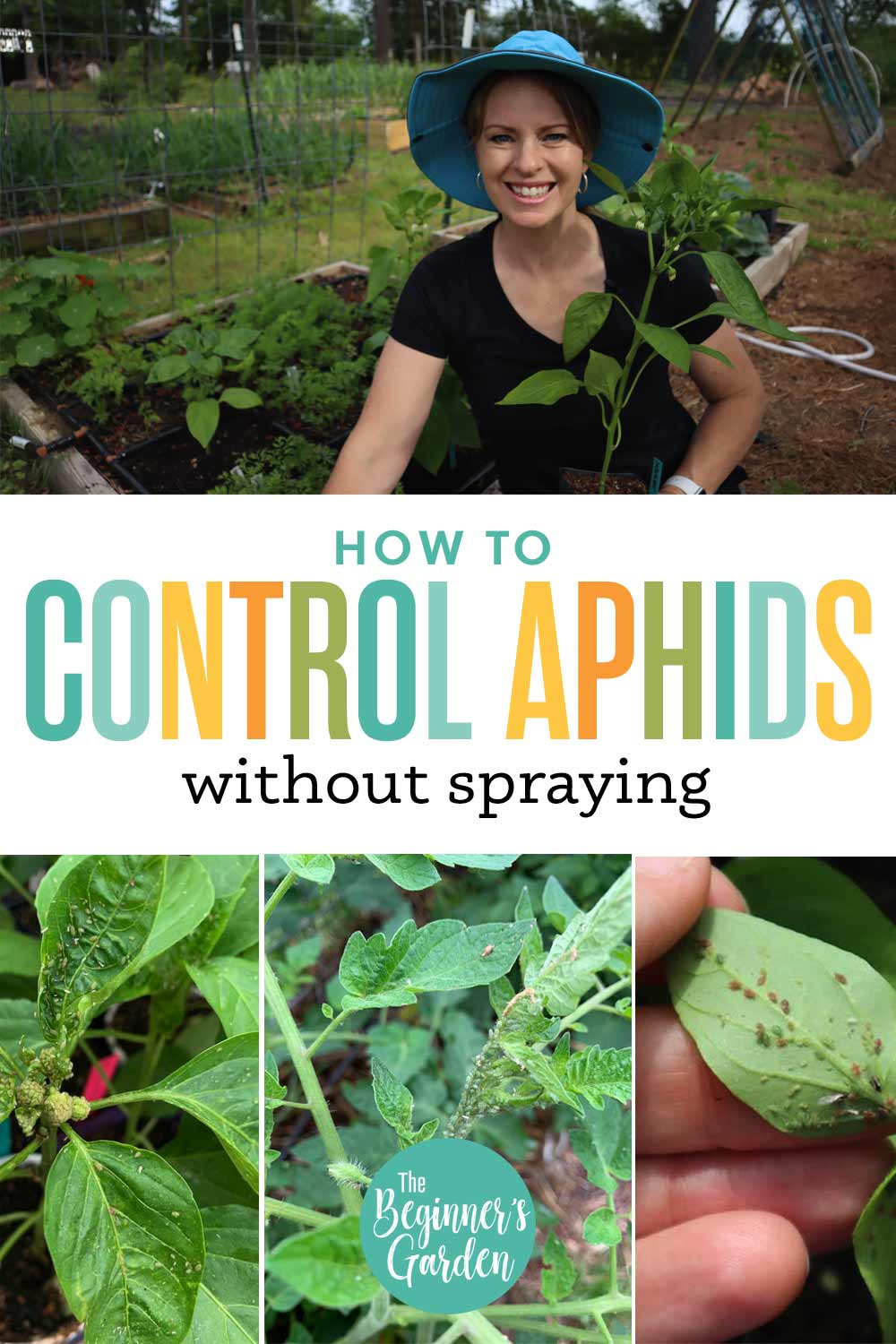How to Control Aphids Without Spraying
Aphids are a pest that most gardeners deal with at some point. Most of us see them every year in the late spring or early summer. While other pests may need help from us to be kept under control or to not kill the plant that we worked so hard to grow, aphids are not the same.
Still, knowing that aphids aren’t as widely destructive as other pests doesn’t mean we won’t panic when we see an infestation settling in. But as a gardener trying to grow crops as organically and pesticide-free as possible, it can be hard to know what to do.
While aphids aren’t a welcomed guest in my garden, I don’t usually tend to spray them with any sprays organic or otherwise. So, how is an organic gardener to deal with aphids?
Let’s talk about what you can do to control aphids without the use of sprays (even the organic ones).
What is an Aphid
Before we get into how to control this pest, let’s talk about what an aphid looks like so you know how to identify them in your garden. Aphids are roughly three-millimeter pear-shaped insects with soft bodies. They appear in a variety of colors; green, red, black, and white are most common.
How to Identify Aphids on Your Plants
Aphids themselves are pretty easy to spot with the naked eye. You usually see the clusters of aphids on new, young growth or on the underside of leaves.
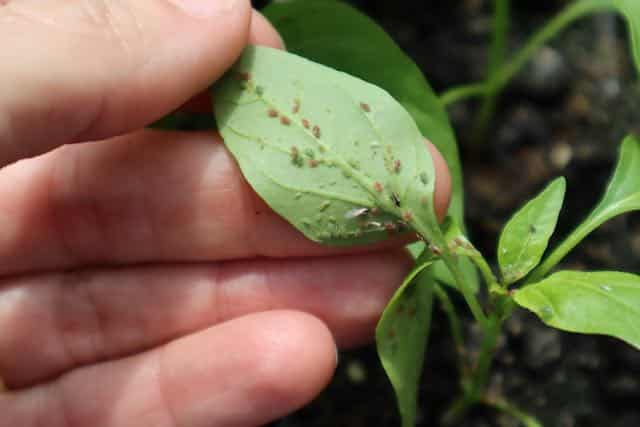
Leaves also will show damage by puckering as the aphids use their mouthparts to suck out the juices of the leaf. As a result, new growth of the plant can be stunted.
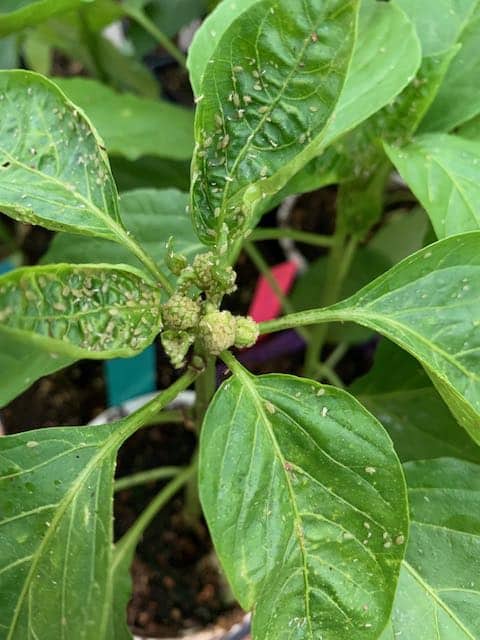
Aphids will often also leave behind a sticky honeydew that attracts ants and can sometimes cause a black fungal growth.
What Most Gardeners Do
Most beginning gardeners’ first instinct is to panic and think the aphids need to be gone immediately. Then they search online for how to get rid of aphids with an organic spray.
Most of the time what you will find with an online search like this is a spray that attacks all soft bodied insects. Yes, these kinds of sprays — like dish soap spray, horticultural oil sprays, and neem oil sprays — work to kill aphids.
BUT, they also kill any other soft-bodied insects present. This includes beneficial insects, like larva of ladybugs, hoverflies, and lacewings.
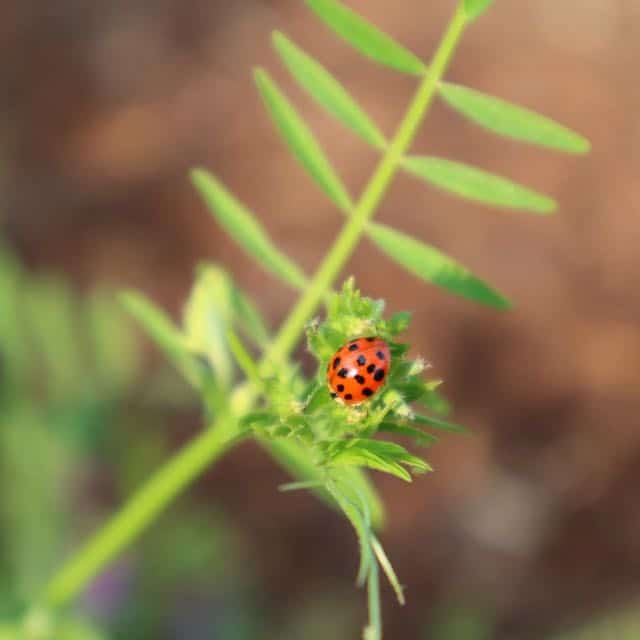
Why To Not Spray
Aphids are the prey of choice for countless beneficial insects. Most notable good guys include not only ladybugs, lacewings, and syrphid flies (also known as hoverflies) but also assassin bugs, big-eyed bugs, damsel bugs, earwigs, ground beetles, minute pirate bugs, parasitic wasps, praying mantids, robber flies, soldier beetles, spiders.
You want all of these in your garden to help with the ecosystem of the garden and even kill more of the pest insects for you.
In order for beneficial insects to find a home in your garden, they need food to stay there. Aphids are a food source and although the adults will eat aphids, it’s primarily their larva that will knock out an aphid infestation in a few days.
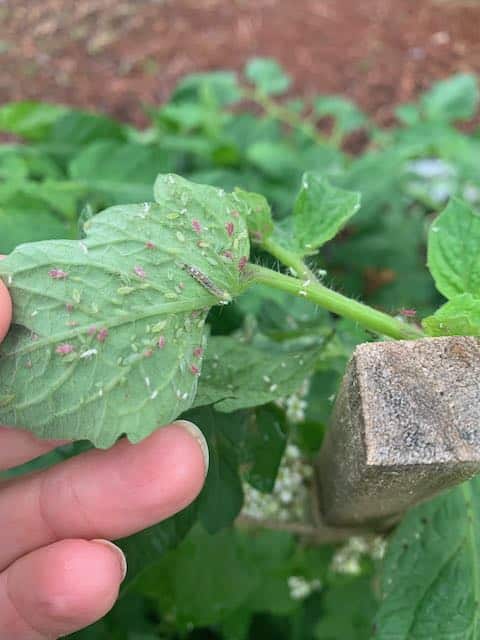
To put it more succinctly: Aphids are soft bodied insects and so are beneficial bug larva. So whatever spray kills one kills the other, this is why spraying anything should always be a last resort.
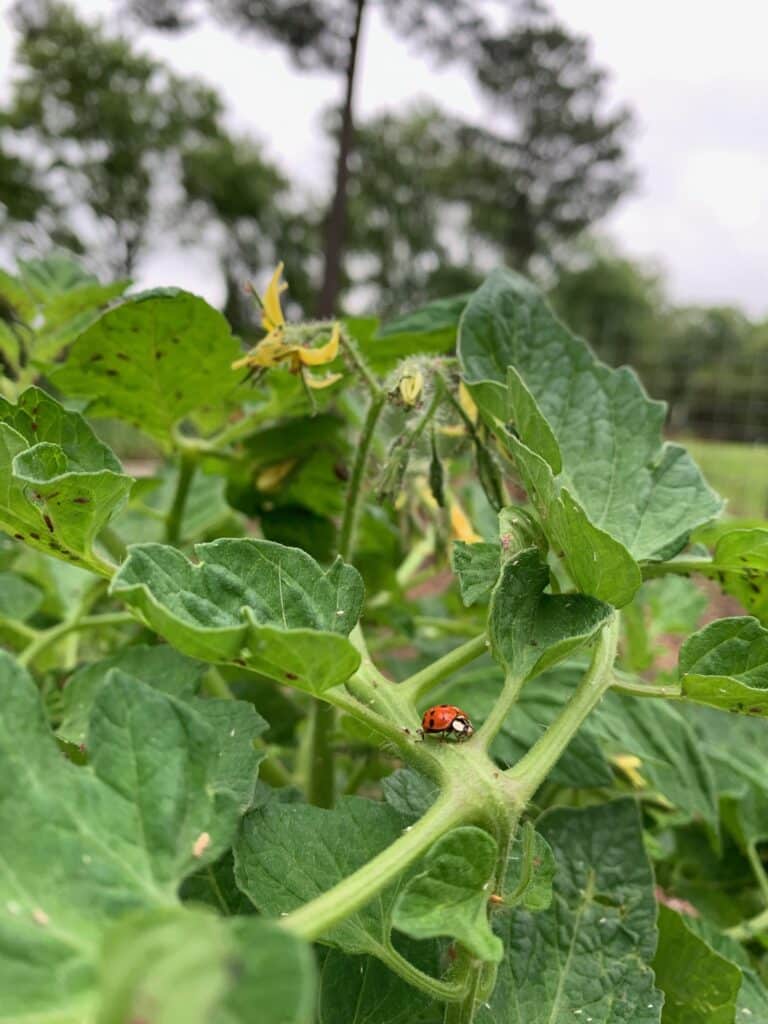
Hopefully you can understand why spraying for aphids can actually cause more harm to your garden and ecosystem.
And yes, it’s easy to agree with theoretically, but when you’re dealing with an infestation — aphids reproduce very fast — sometimes good intentions are thrown out the window. How do you prevent that and stay the course? Have a plan, be willing to think “big picture,” and be patient.
What To Do Instead
If we have decided that we don’t want to spray for aphids, what are the alternatives when an infestation mount and we start seeing more aphids and damage?
My first step is to take the ‘wait and see’ approach. Give the good guys a chance to find your garden and the pest or food source. I have found that if I just give it time, the beneficials show up (fashionably late I suppose!) and take care of the problem for me in short order.
In the meantime, you can take other steps to knock back the aphid population if the beneficial insects are not finding them (especially if you have young plants in a greenhouse where the good guys can’t always find them).
First try to crush them with your fingers. This can be a sticky process but it’s not too bad. Next (or instead), you can carefully spray them off with a blast of water. Since aphids like to congregate on new, young growth, be careful when you’re spraying that you don’t damage the plant.
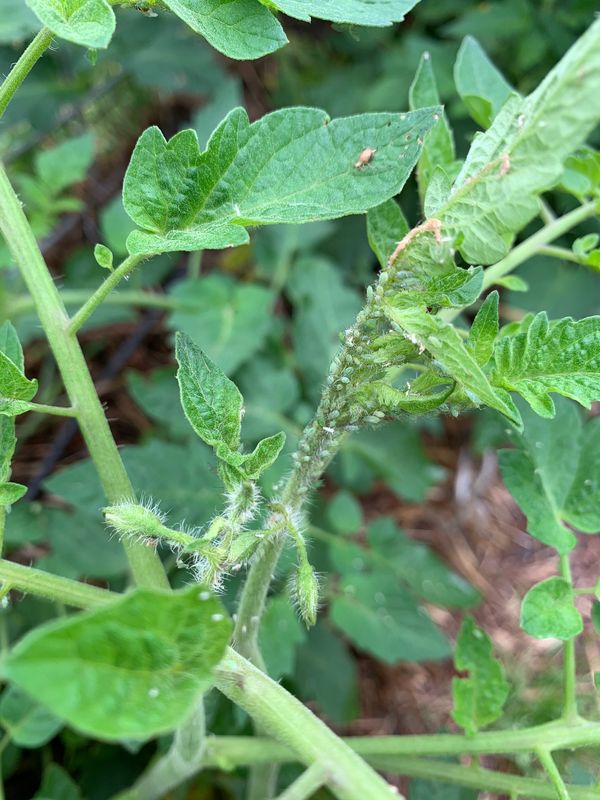
One other thing you can do is add earthworm castings to the soil around your plants. Earthworm castings contain a chemical called chitinase that when injested, kills aphids. When the plant uptakes the chitinase from the worm castings, the aphids injest it as it feeds on the plant. Worm castings also contribute to the health and strength of your plant, making it able to handle the infestation better.
I purchase my worm castings from True Leaf Market. (affiliate link.)
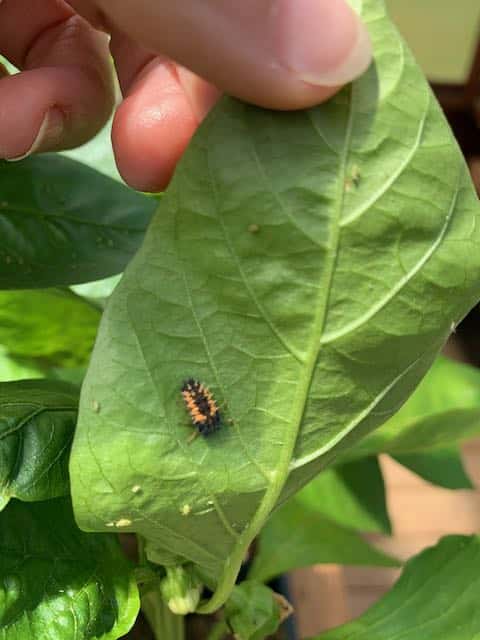
Final Thoughts
The bottom line for an organic home gardener is to see aphids for what they are without panicking. Always choose a non-harming method first and give nature a chance to catch up. If you still feel like you need to spray, my choice is a horticultural oil spray. But before spraying, take every possible precaution to make sure no beneficial larva are present before spraying. Learn what they look like and look out for them.
Thankfully, aphids are generally an early season problem. As summer settles in, you’ll find you may have much larger pest issues to worry about. If you want to get on top of those as an organic gardener, you may be interested in my Pest Control Mini-Course here.
Do you get overwhelmed with garden planning?

Subscribe here for my best tips to plan your garden in just 7 days -- all for FREE.
Plus, I'll send you my "In the Garden E-mail" on Fridays, periodic updates on garden resources relevant to you, and you'll receive access to my entire bank of free garden downloads!
You are also agreeing to our privacy policy.

